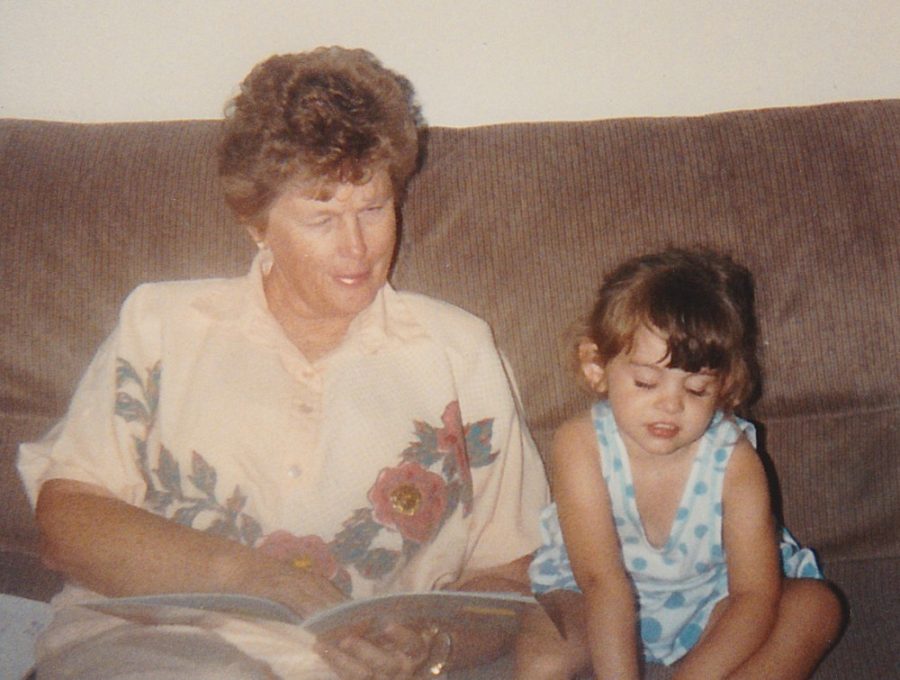It was three days after my birthday last year that I stood in the hospice room again, holding my grandmother’s hand. It was my turn alone with her, to say a final goodbye, her small hand had already lost all the warmth that had gotten me through countless adventures and heartbreaks in my life. She was gone, her long, hard battle with dementia over.
The last words I would say to her, before one last ‘I love you’ were, ‘I’m sorry. I never meant to break that promise. I’m sorry I wasn’t there for you, like you were there for me. I hope you’re on that hot air balloon ride now, somehow, waving down.’
We are programmed to believe that our grief must be packaged into the widely-accepted seven stages of grief: denial, pain and guilt, anger and bargaining, depression, the upward turn, reconstruction and acceptance and hope. I’m here to tell you that grief isn’t some standard procedure you must follow.
You may feel some of those seven symptoms, or all, or none, but you are allowed to feel and process your grief on your terms. Don’t let anyone make you feel like you aren’t grieving enough or the right way. There is no right or wrong way. A heart doesn’t break in a predesigned, socially accepted pattern — it just breaks.
For years, ever since I was a little girl, my oma made me promise I would take her on a hot air balloon ride for her 100th birthday. There were years that it went unspoken, but when she received her diagnosis of dementia a few years back, it was all I could think about. She forgot many things — that’s how the disease operates — but she never forgot our promise.
RELATED: Column: What should be remembered?
On her last birthday she would turn to me and smile, suggesting we push that trip up sooner. I kept telling myself I had to do this soon, or I would regret it for the rest of my life.

There were many things I had planned to do for her; record as much of her life story as she could remember, make her an audiobook of classic Disney stories we used to love, and call her once a day just to talk. I didn’t do any of those things, and it is only after some time that I can move past those regrets.
Somehow I had convinced myself that if I could get her in that hot air balloon, maybe I could save her somehow. But neither I, nor you, can fight dementia or the aging process. What was wrong with me that I couldn’t follow the guidelines of loss? Why, after losing so many people already, was this not easier?
My personal steps of grief were different than the steps of my family, though we all felt many of the classic stages. But, this “roadmap” that we have heard in school and psychology all of our lives didn’t help me. I felt guilt and depression long before oma died. There aren’t any infographics telling you how to get through the pre-stages of the stages of grief. I struggled hardest just trying to “stay strong” and “keep on swimming.”
We are told to recover from the loss of a loved one in a set time. In some states, employers must give an employee up to three days for a death in the family. In Arizona, employers aren’t required by law to give bereavement time at all. It has now been one year since oma died. I woke up in the middle of the night recently, crying as I realized that. Three days hardly seems enough, but that is what’s expected of us.
Elisabeth Kübler-Ross, a Swiss-American psychiatrist, who wrote the original five stages of grief, would later write that she regretted the way she wrote these stages. People took them literally, and she has only meant them as some common stages, not standard ones.

Later in life, she would write about grief again in “On Grief and Grieving.”
“I now know that the purpose of my life is more than these stages,” she wrote. “I have loved and lost, and I am so much more than five stages. And so are you.”
RELATED: Column: What high school doesn’t prepare you for
I’m sorry, because you most likely will experience the loss of losing a loved one, but you aren’t alone. It’s OK if you feel every single one of those feelings, or none. It’s OK if it takes you three days to move on or three years. Those stages of grief are not mandatory and no one can tell you how to cope.
I’m still grieving, and trying to find my own way to heal. I try to think about her when I’m sad or scared. I try to close my eyes and imagine lifting off the ground. I’m 5 again, or 10, or even 29, and I’m holding oma’s hand in that hot air balloon, waving down to the world below me. It’s the grand adventure she told me it would be all those years, and I can find no sadness in that.
Please, give yourself the time you need. Talk about it. Be angry, sad and confused but don’t hold onto it.
Forgive yourself, because it’s not your fault and your loved one knew that too. Don’t worry if you don’t know what’s ahead in this process.
Love is way more important than any seven-tiered process could ever be.
Follow Jamie Verwys on Twitter









